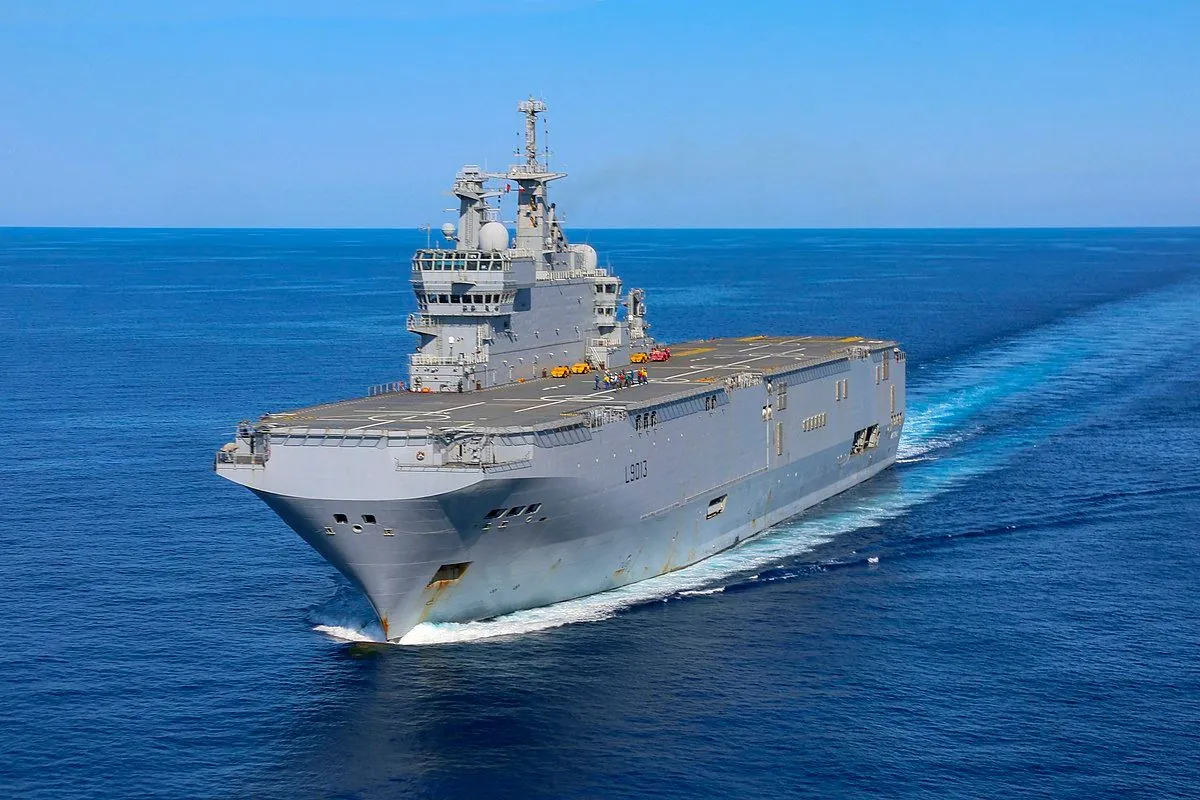In response to escalating tensions in Lebanon, France has taken proactive measures by deploying a naval asset to the eastern Mediterranean. The French military announced that a helicopter carrier is en route to the region, expected to arrive within the next five to six days. This strategic move comes as Western nations contemplate potential evacuation procedures for their citizens in Lebanon, should the situation deteriorate further.
The vessel in question is the Dixmude, a Mistral-class amphibious assault ship capable of carrying up to 16 helicopters. Departing from Toulon, France's largest naval base in the Mediterranean, on September 30, 2024, the Dixmude's deployment underscores the gravity of the situation. With approximately 20,000 French nationals residing in Lebanon, France's decision reflects its commitment to ensuring the safety of its citizens abroad.
The current crisis stems from intense fighting that erupted between Israeli forces and Hezbollah in southern Lebanon on October 2, 2024. Israel reported launching airstrikes against Hezbollah leadership, followed by a ground incursion involving paratroops and commandos. This escalation has raised concerns about the potential for a full-scale conflict in the region.
Lebanon, a country with a rich history and a population of approximately 6.8 million as of 2024, has long been affected by regional tensions. The roots of the Israeli-Lebanese conflict date back to the 1940s, and the country experienced a devastating civil war from 1975 to 1990. Hezbollah, founded in 1985 during this civil war, is considered a terrorist organization by several countries and has been a significant factor in the ongoing tensions.
Western nations are now evaluating various options for evacuating foreign nationals if necessary. Cyprus, located about 264 km west of Lebanon, and Turkey are being considered as potential safe havens. Despite not sharing a land border with Lebanon, Turkey's strategic location makes it a viable option for evacuation efforts.
The international community remains vigilant, with the United Nations Interim Force in Lebanon (UNIFIL) having maintained a presence in the country since 1978. France, as a permanent member of the UN Security Council and given its historical ties to Lebanon—having held a mandate over the country from 1923 to 1943—plays a crucial role in diplomatic efforts to address the situation.
Lebanon's complex geopolitical landscape is further highlighted by its unique cultural and geographical features. The country boasts two official languages, Arabic and French, reflecting its historical ties. Its flag prominently features the Cedar of Lebanon, a symbol of the nation's resilience. With a Mediterranean climate characterized by hot, dry summers, Lebanon is home to the ancient city of Byblos, one of the oldest continuously inhabited cities in the world.
As the situation unfolds, the international community watches closely, hoping for a peaceful resolution to the current tensions in this historically significant region of the Middle East.
